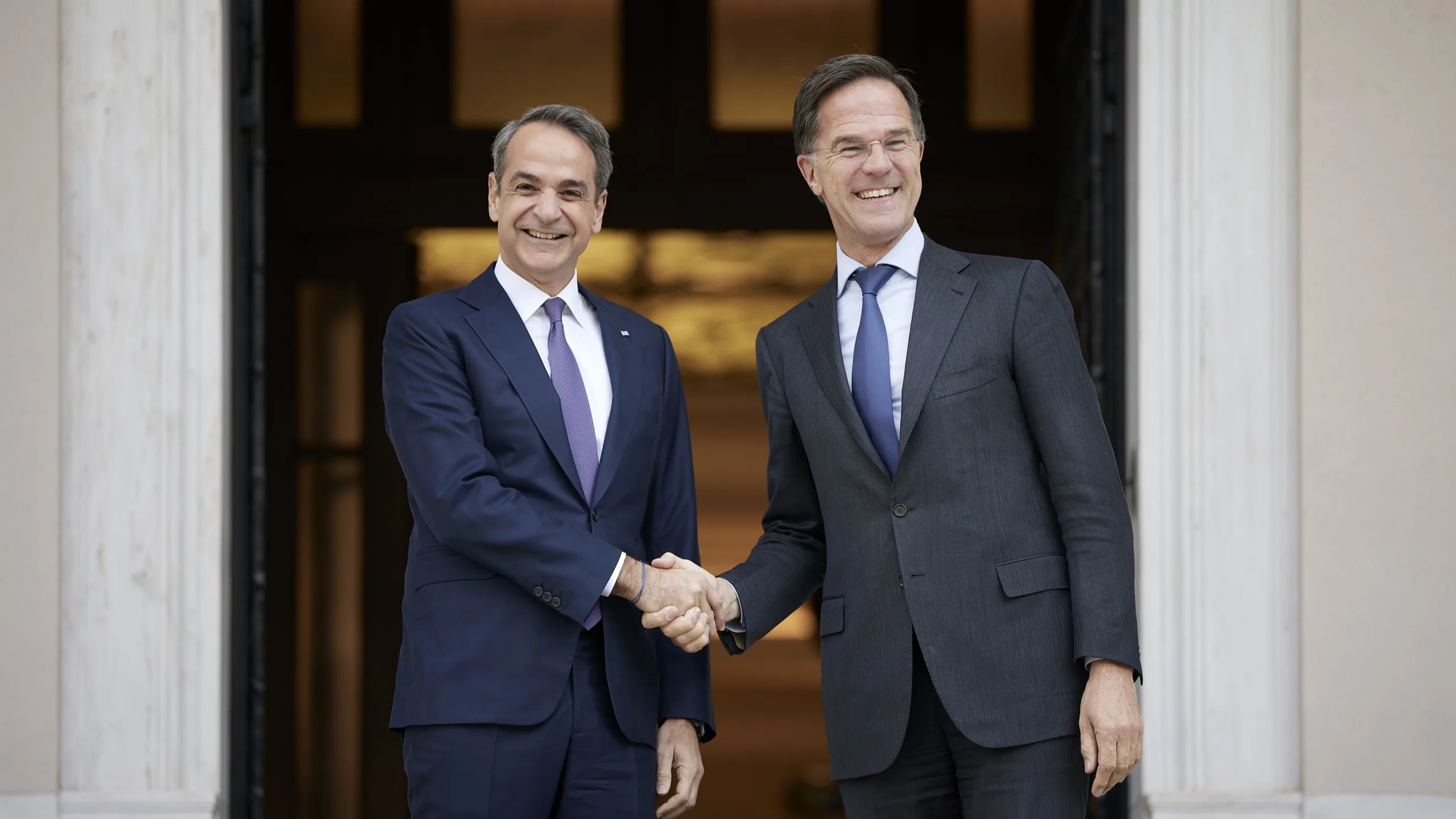Greek Prime Minister Kyriakos Mitsotakis has emphasised the need for the European Union to enhance its defence role, strengthen its arms industry, and deepen collaboration with NATO. His comments came during talks in Athens on Tuesday, November 26, with NATO Secretary-General Mark Rutte.
In the wake of Russia’s 2022 invasion of Ukraine, the EU has prioritised bolstering its defence capabilities. The European Commission has pledged to advance key initiatives, particularly in air and cyber defence.
Mitsotakis highlighted the shared priorities of NATO allies, stating, “We agreed on one of the fundamental priorities for all the allies, the need to boost our common defence, a target which requires a strong defence industry, significant investments… and a more efficient cooperation between the EU and NATO.”
Greece stands out among EU members as it allocates approximately 3% of its GDP to defence annually. However, across the EU, defence spending remains a challenge. Despite increased investments since the conflict in Ukraine, the EU’s collective defence expenditure for 2024—estimated at €326 billion—accounts for just 1.9% of the bloc’s GDP, according to the European Defence Agency.
Athens has proposed measures to allow member states greater fiscal flexibility for defence investments.
Greece is particularly focused on modernising its military and revitalising its defence industry following a decade-long economic crisis that significantly curtailed its spending. Among its efforts is a €2 billion collaboration with Israel to develop an anti-aircraft and missile defence system.
Mitsotakis reiterated the importance of supporting Ukraine, while Rutte commended Greece for its role in accelerating F-16 fighter jet training for Ukrainian pilots and technicians.
The NATO Secretary-General remarked, “We must also strengthen our deterrence and defence, including by boosting defence investment and production. The good news is that we have in NATO the alliance we need to defend every inch of our territory.”

